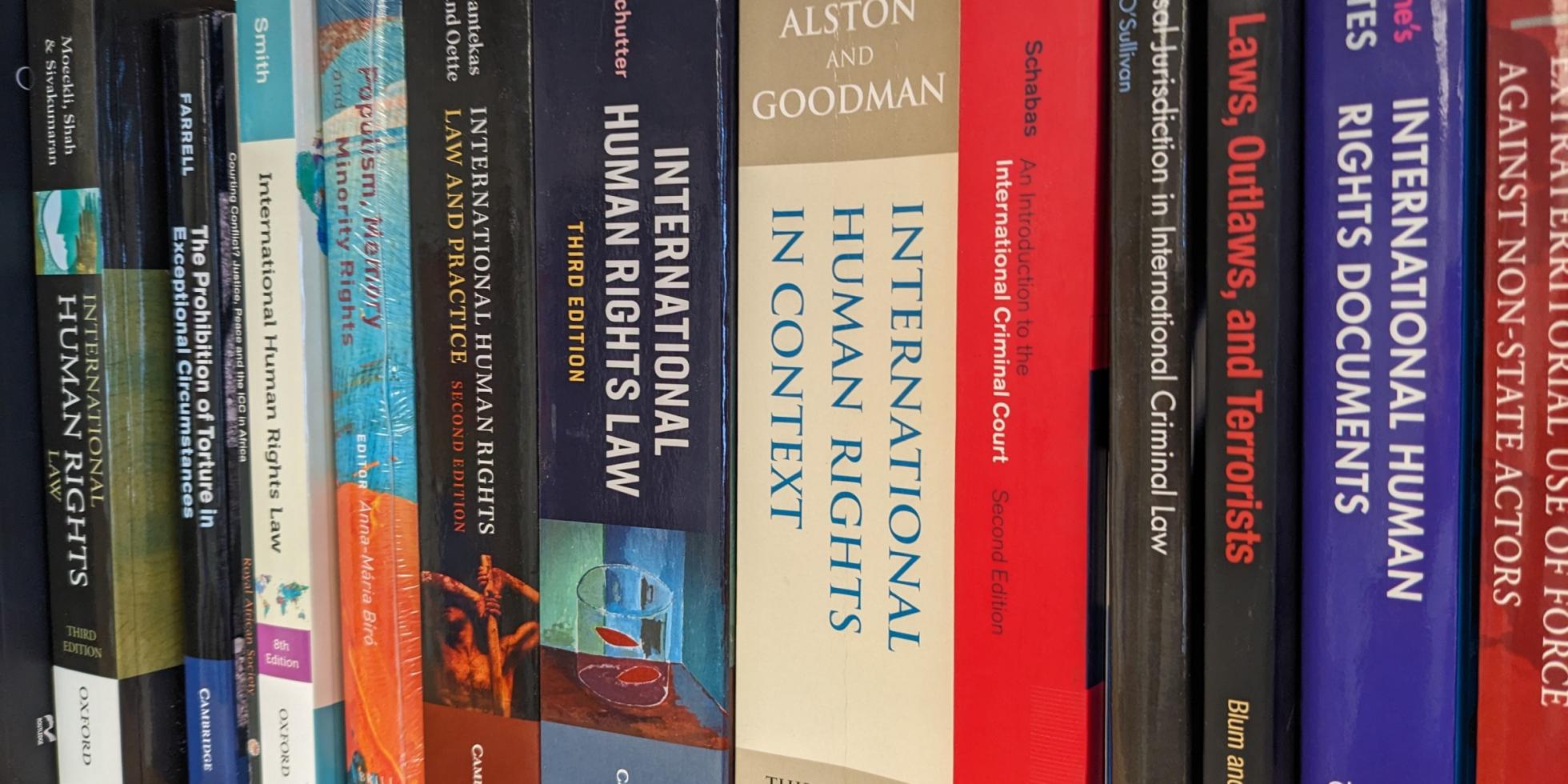The virtual human rights library brings together resources from multiple libraries and information services, both internal and external, to create an online hub dedicated to the study of human rights. This curation is unique in its interdisciplinary concerns and focuses on writings and research from social sciences, humanities, and law.
The virtual library is continually updated with the latest academic research in issue areas, as well as with relevant films, recorded conversations, and other forms of media.
Please Note:
The Virtual Library is usable by all visitors, but the hyperlinks to materials listed are for UChicago community members with a CNet ID and password.
Please direct feedback and suggestions to Kathleen Cavanaugh.
For technical assistance, email pozenhumanrights @ uchicago.edu.
Searchable Database
Click into the dropdowns to select the disciplines, keywords, and media type for your search, and then hit "Apply."
"Anthropology and Human Rights"
This essay reviews what anthropologists have contributed to the human rights framework and how they have used it for research and advocacy.
"From Skepticism to Embrace: Human Rights and the American Anthropological Association from 1947-1999."
This article questions the characterization of the 1999 Declaration as a complete turnaround by studying the role that the 1947 Statement has played in the development of anthropological views on human rights. In particular, it takes a diachronic look at...
"Human Rights and Sociology: Some Observations from Africa."
In this paper, I examine the relationship between sociology and the human rights dis- course. A major segment of the discourse is between Western and nonwestern scholars join- ing the debate from a wide variety of disciplines including law, political...
"Precarious bodies: The securitization of the “veiled” woman in European human rights."
This article examines how judicial human rights in Europe have adopted the security politics that have swept across Europe in recent years and how, through the European Court of Human Rights’ (ECtHR)decision‐making over the veil they have contributed to the...
"Sociologists confront human rights: the problem of universalism."
This paper examines sociologists' current interest in the topics of human rights and globalisation. Some descnbe a world where everyone has rights (or at least a modicum of rights), because we are all human, and we all interact and communicate...
"The barbarism of civilization: cultural genocide and the ‘stolen generations’."
Norbert Elias suggested that ‘civilization’ involves the transformation of human habitus so that violence of all sorts is gradually subjected to greater and more sophisticated forms of management and control, whereas ‘decivilization’ encompasses processes which produce an increase in violence...
"The Institutionalization of Human Rights and its Discontents: A World Cultural Perspective."
A recurring theme in the sociology of human rights is the vast decoupling that exists between the formal codification of these rights in principle and their implementation in practice, fueling much debate about the effectiveness of international law. Yet, despite...
"The Politics of Acculturation: Female Genital Cutting and the Challenge of Building Multicultural Democracies."
Understanding how the idea of culture is mobilized in discursive contests is crucial for both theorizing and building multicultural democracies. To investigate this, I analyze a debate over whether we should relieve the “cultural need” for infibulation among immigrants by...
"The problem of cultural relativism for the sociology of human rights: Weber, Schmitt and Strauss."
This paper explores various aspects of the problem of perspectivism in Max Weber’s soci- ology as a component of the legacy of Friedrich Nietzsche in order to examine the contri- bution, if any, of sociological thinking to the understanding of...
"What Do Human Rights Do? An Anthropological Enquiry"
In the torrent of reporting on human rights in recent years far more attention is given to human rights violations in the non-Western world than in Euro-America. How should we explain this imbalance? … [W]e should look at the variable...

